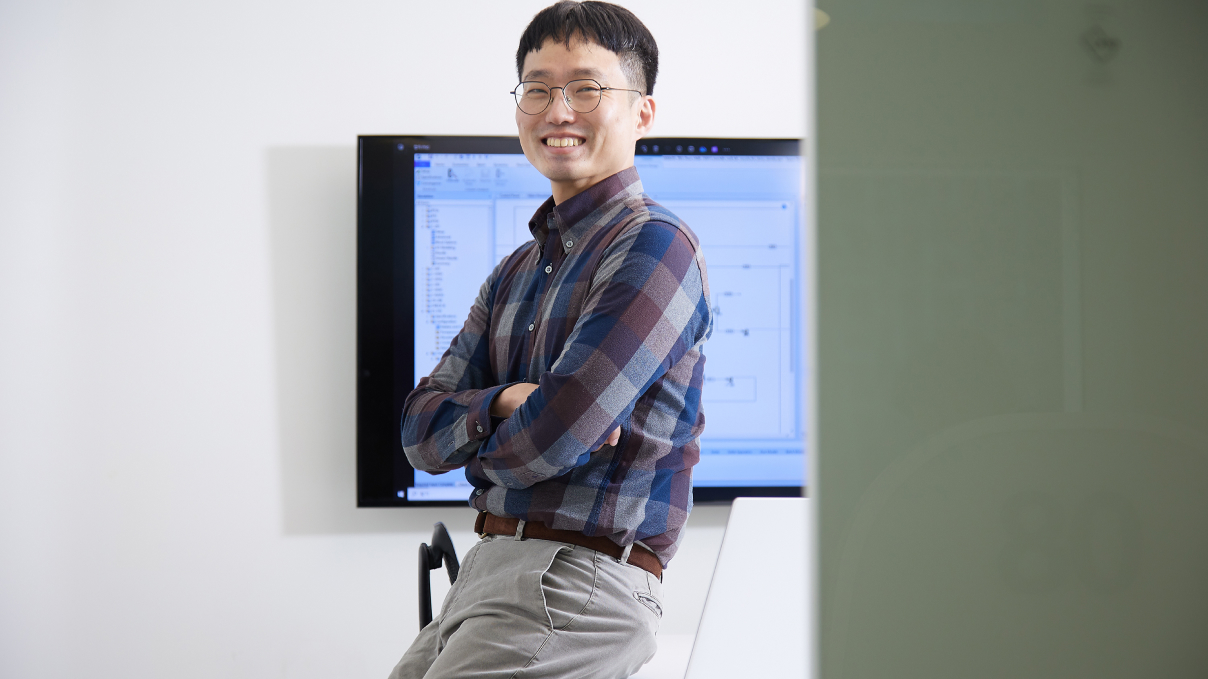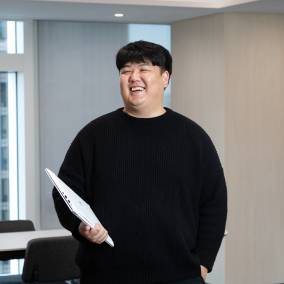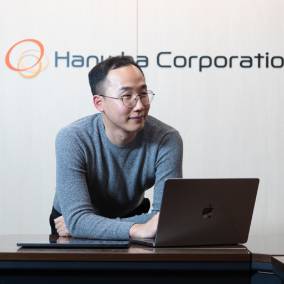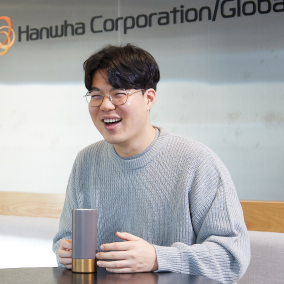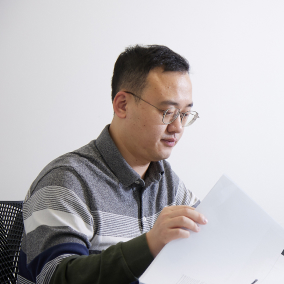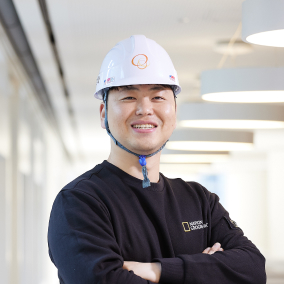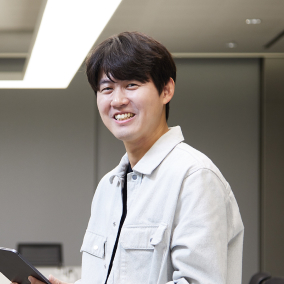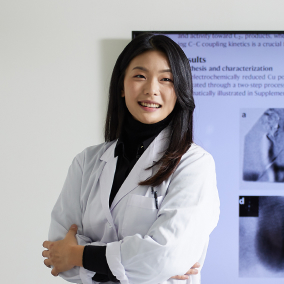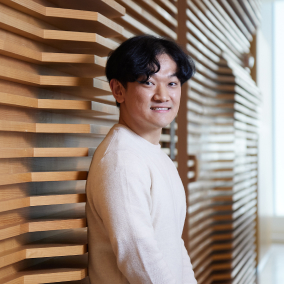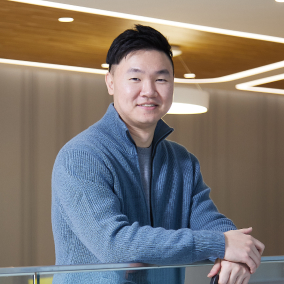Job Interview
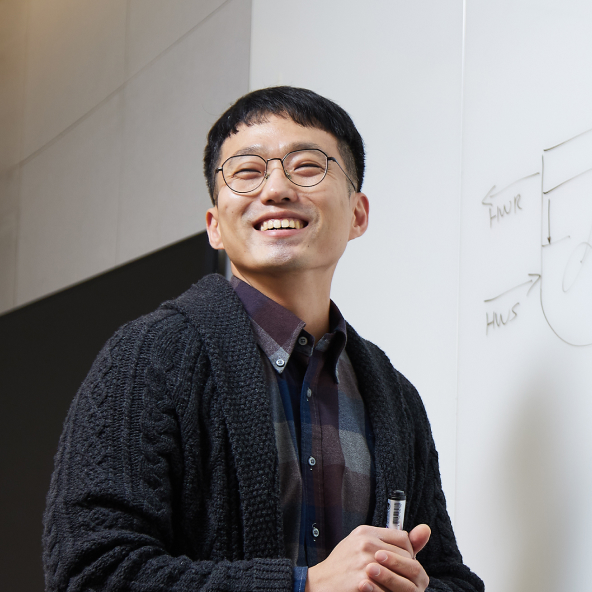
- Material Department
- Material R&D Department / Specialty Chemical R&D Center
- R&D
Taejung Hah, Principal Researcher
- How do you spend your day?
My schedule is quite flexible due to various off-site tasks, like meetings with other teams or partners, and conducting joint projects with university institutions. I typically arrive at the office between 7 and 7:30 a.m. and start my day with a coffee break with colleagues. Since they also experience frequent schedule changes, we use this time to update each other on our plans for the week.
We spend our time between the lab and the office because our work involves both experimenting and designing processes for new items.
On experiment days, my first task in the lab is to complete a safety checklist. While it might seem that everything always runs smoothly – as indicated by the checklist circles – looking back over the year, we've had several incidents, like rainwater leaking from ceiling cracks or the chemical agent cabinet.
Experiments typically follow a sequence of setup, operation, cleanup, and result analysis. Once the experiment is set up and running, I have time for other tasks, like going over previous experiment results or addressing process design issues. Of course, I regularly check on the experiment to ensure everything is operating correctly. The experiments for my current project usually take 7 to 8 hours, so by the time we finish and clean up, it's almost time to head home.
After lunch in the cafeteria, I have plenty of time left in the afternoon. These days, I've been working out at our in-house fitness center with colleagues.
After work, I take time to relax or engage in personal study. I have a keen interest in software, so I often spend time learning about new process design software that's been introduced.
- Could you Introduce your team and your job.
Specialty Chemical R&D Center is developing specialty chemical called amino alcohols. Our organization is composed of synthesis, process and analysis, and I'm in process part.
The synthesis part finds synthetic routes for targeting materials using a variety of chemicals. These researchers, who have dedicated a long time to synthesis, possess a deep understanding of various chemicals, so initial formulation methods often originate from their work.
In the process part, we break down the entire process into individual units based on the synthetic route and initial formulation method developed by the synthesis part. Then, we create a concept design by quantifying and optimizing each unit process. Purification is a critical part of the process because undesired byproducts are inevitably generated during synthesis. These must be filtered out to obtain a high-purity product with significant value. To achieve this, we invest considerable efforts in designing the purification process using various methods like evaporation, absorption, extraction, and crystallization. We refine and advance our technology through experimental validation.
Currently, our goal is to design a production process for pharmaceutical-grade amino alcohols and to develop optimal control technology for the crystallization process.
- Can you share your growth experience in our company?
I'm learning a lot by working closely with relevant teams, such as the engineering part which designs a plant with commercialization in mind from the R&D stage, and the business planning and sales/marketing parts involved in product sales. Focusing solely on R&D can narrow researchers' perspective, possibly leading to investment in products or technologies that are impractical for the market. I believe that organic collaboration within the organization is the key factor in my growth, helping me broaden my view and understand the entire project flow.
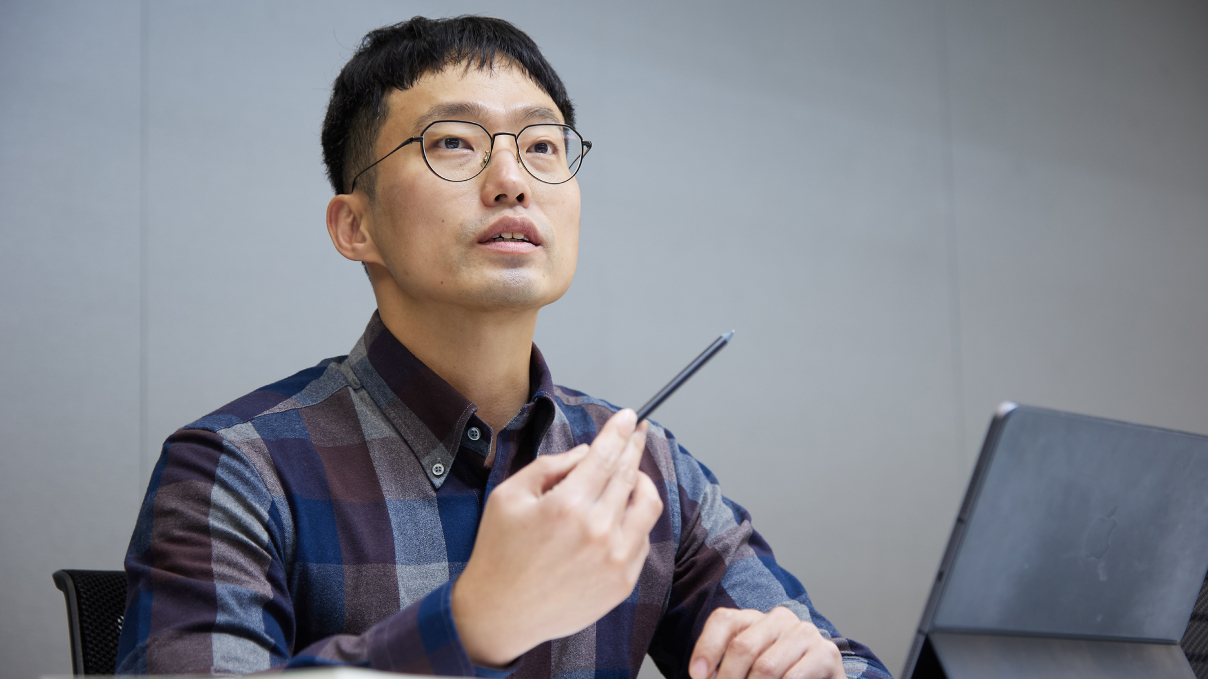
- Explain the most fulfilled experience at work.
Since process modeling relies heavily on predictions, it often doesn't proceed as smoothly as expected. Therefore, even small achievements during the course of research are a source of great joy and feel rewarding.
- Why did you choose Hanwha Corporation/Global?
The biggest frustration in my 15-year career as a researcher has been encountering organizations with very low expectations for R&D projects. They often question the value of proprietary technology, asking why develop it if the same technology can be purchased elsewhere. After I heard that the company placed a high value on R&D, I decided to join the company, hopeful that my research and development efforts would be realized.
- What boosts you when you're exhausted by work?
The support from my colleagues and family has been a huge encouragement. Finding pleasure in R&D is not easy, as many projects end in failure. So, I've learned to find joy in the small achievement along the way.
- What's your personal career goal?
I aspire to be a specialist in process research, focusing on integrating existing technologies with new ones through independent research alongside the company's projects.
- Can you advise young talnets on what kind of studies or capabilities they should develop to do this job?
The field of R&D is vast and difficult to define narrowly, so having a solid foundation in engineering and the ability to gather information with flexible thingking are enough to start your career as a researcher.
